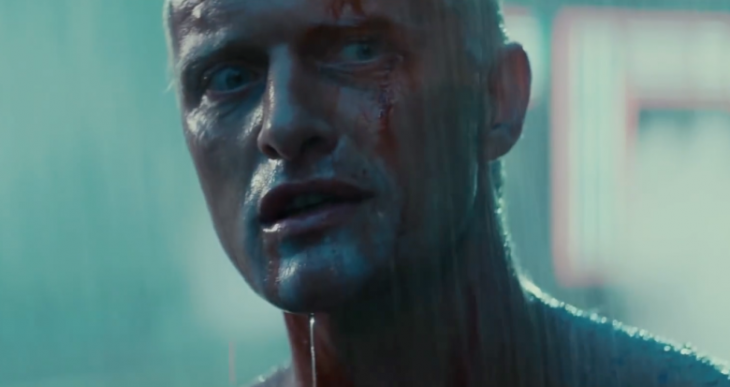
Word of the Day: Cyberpunk
Today’s word of the day, courtesy of the Oxford English Dictionary, is cyberpunk. According to the OED, cyberpunk is a “subgenre of science fiction typified by a bleak, high-tech setting in which a lawless subculture exists within an oppressive society dominated by computer technology.” It can also refer to a “character in, or the author of, a work of this type” or to a “person who accesses computer networks illegally; a hacker,” although the latter is rare. The word clearly is a compound of cyber and punk, but interestingly, www.etymonline.com does not include it among the words for which it provides etymologies. But we can look at each part.
According to www.dictionary.com, cyber– is “a combining form meaning ‘computer,’ ‘computer network,’ or ‘virtual reality,’ used in the formation of compound words (cybertalk; cyberart; cyberspace) and by extension meaning ‘expressing visions of the future’ (cyberfashion).” It further states that the form comes from cybernetics, which means “the study of human control functions and of mechanical and electronic systems designed to replace them, involving the application of statistical mechanics to communication engineering.” A “combining form” is, in linguistic terms, a bound morpheme, meaning that it does not exist as a word by itself but only in combination with another morpheme, usually a free morpheme. A morpheme is “any of the minimal grammatical units of a language, each constituting a word or meaningful part of a word, that cannot be divided into smaller independent grammatical parts.” Of course, a morpheme like cyber– could be used as a word, as if someone said, “That is so cyber.”
Punk is a bit more complicated. In the 1590s, punk was a slang term for a harlot or a prostitute. Later it became a slang term for a gay man. By the 19th century, it became an adjective meaning “inferior, bad,” but also a noun meaning “rotten wood.” From there it started to be used to refer to an inferior, or inexperienced, or worthless person, and from there it becomes associated with young people, particularly young criminals. That is basically how it was used when I was a kid in the 1960s.
In the 1970s, a movement in rock ‘n’ roll developed that became known as punk rock. According to LiveAbout.com, “The first concrete punk rock scene appeared in the mid-’70s in New York. Bands like the Ramones, Wayne County, Johnny Thunders and the Heartbreakers, Blondie and the Talking Heads were playing regularly in the Bowery District, most notably at the legendary club CBGB (https://www.liveabout.com/history-of-punk-rock-2803345). This style was an “aggressive form of rock music that coalesced into an international (though predominantly Anglo-American) movement in 1975–80. Often politicized and full of vital energy beneath a sarcastic, hostile facade, punk spread as an ideology and an aesthetic approach, becoming an archetype of teen rebellion and alienation” (https://www.britannica.com/art/punk).
The sarcastic, hostile façade reflected a movement in science fiction, called New Wave SF. This movement was highly modernistic, highly experimental, and generally soft as opposed to hard SF. This movement included “writers like Philip K. Dick, Roger Zelazny, John Brunner, J. G. Ballard, Philip José Farmer and Harlan Ellison examined the impact of drug culture, technology, and the sexual revolution while avoiding the utopian tendencies of earlier science fiction” (https://en.wikipedia.org/wiki/Cyberpunk#Background). An example of the transition from New Wave to Cyberpunk is the 1982 movie Blade Runner, directed by Ridley Scott and based upon the novel Do Androids Dream of Electric Sheep by Philip K. Dick.
Then this happened, according to the wiki on cyberpunk: “In 1983 a short story written by Bruce Bethke, called “’Cyberpunk,’ was published in Amazing Stories. The term was picked up by Gardner Dozois, editor of Isaac Asimov’s Science Fiction Magazine and popularized in his editorials. Bethke says he made two lists of words, one for technology, one for troublemakers, and experimented with combining them variously into compound words, consciously attempting to coin a term that encompassed both punk attitudes and high technology.
“He described the idea thus:
“The kids who trashed my computer; their kids were going to be Holy Terrors, combining the ethical vacuity of teenagers with a technical fluency we adults could only guess at. Further, the parents and other adult authority figures of the early 21st Century were going to be terribly ill-equipped to deal with the first generation of teenagers who grew up truly ‘speaking computer.’”
Then in 1984, William Gibson published Neuromancer, the first in a trilogy of novels that presented a near-future world dominated by technology and “virtual reality,” along with drug use and a sense of alienation. The world of Neuromancer is dystopian. It is a classic novel, and everyone interested in science fiction should read it. The wiki on cyberpunk concludes this way: “The impact of cyberpunk, though, has been long-lasting. Elements of both the setting and storytelling have become normal in science fiction in general, and a slew of sub-genres now have -punk tacked onto their names, most obviously Steampunk, but also a host of other Cyberpunk derivatives.”
Cyberpunk is a fun genre; it includes, in addition to what I mentioned above, elements of film noir and the hard-boiled detective genre. It has been somewhat predictive of the sorts of things that one finds in the world today, though the world today is not nearly as dark and dystopian as the world often portrayed in cyberpunk fiction. But it is a little bit dated: “The vision was not perfect, though. As Gibson himself has joked, Neuromancer has a ‘complete absence of cellphones, which I’m sure young readers must assume is a key plot point.’”
The image is from Ridley Scott’s Blade Runner (1982). Rutger Hauer played Roy Batty, whose “tears in the rain” monologue is one of the classic moments in the film, and maybe in all of film.